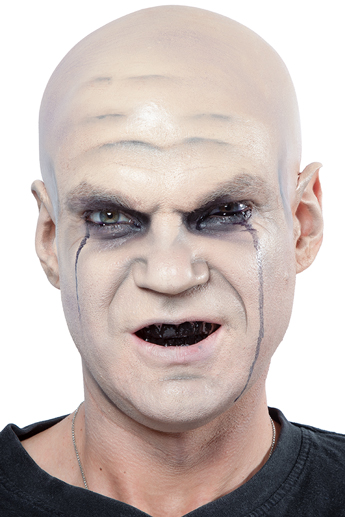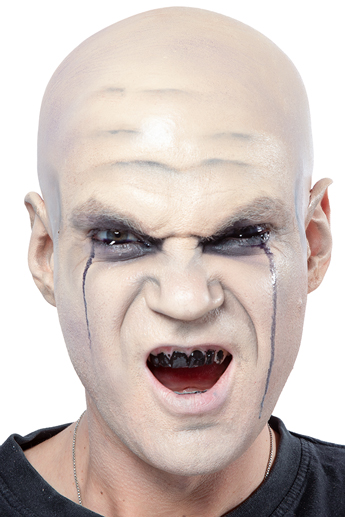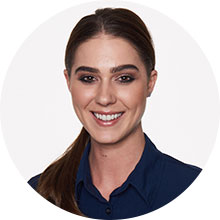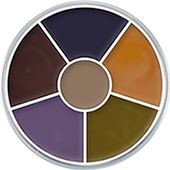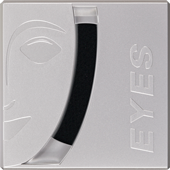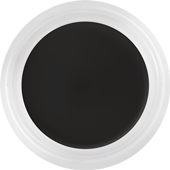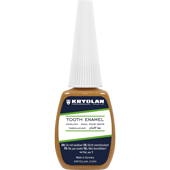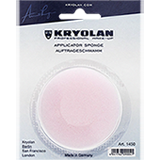Tutoriel
Gargoyle
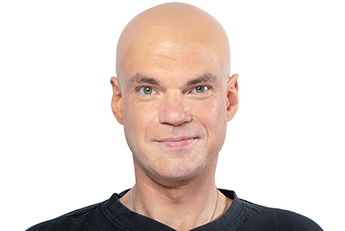
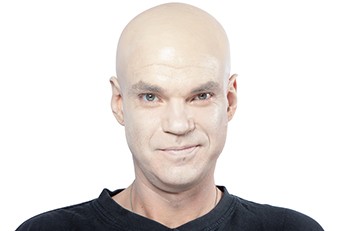
Step 1
For the base of this make-up, our make-up artists used the color Bruising Beige from the Cream Color Circle (Bruise). For application, use a soft brush and work it over the entire bald head. Be careful not to tear the Glatzan Bald Cap or lift the edges of the cap. Work in circular motions to build the base of the entire look.
For the base of this make-up, our make-up artists used the color Bruising Beige from the Cream Color Circle (Bruise). For application, use a soft brush and work it over the entire bald head. Be careful not to tear the Glatzan Bald Cap or lift the edges of the cap. Work in circular motions to build the base of the entire look.
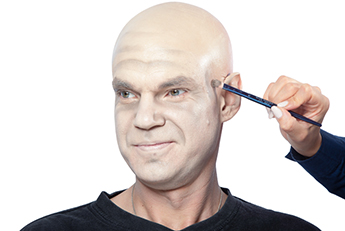
Step 2
To create shading and aging lines, use the color Bruise 3 of the Cream Color Circle (Bruise). Use it with a defined brush to draw in the model's natural wrinkles and expression lines. Make them appear soft by blending them. Shading is also applied to the temples, the eye sockets and the recesses of the bone structure.
To create shading and aging lines, use the color Bruise 3 of the Cream Color Circle (Bruise). Use it with a defined brush to draw in the model's natural wrinkles and expression lines. Make them appear soft by blending them. Shading is also applied to the temples, the eye sockets and the recesses of the bone structure.
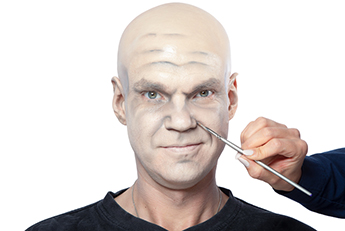
Step 3
In this step, the lines already drawn are deepened even further with Eye Shadow Matt (deep black) and blended with Cream Color Circle (Bruise).
In this step, the lines already drawn are deepened even further with Eye Shadow Matt (deep black) and blended with Cream Color Circle (Bruise).
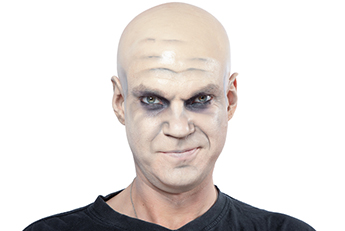
Step 4
Meanwhile, to create the fearsome look, apply HD Cream Liner (ebony) to the eyelids and under the waterline using a firm brush. They are connected through the inner corner of the eye and blended out underneath the bottom lash line.
Meanwhile, to create the fearsome look, apply HD Cream Liner (ebony) to the eyelids and under the waterline using a firm brush. They are connected through the inner corner of the eye and blended out underneath the bottom lash line.
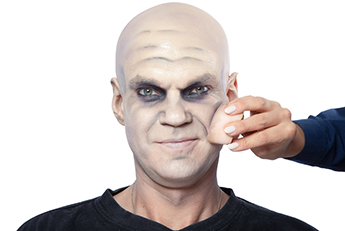
Step 5
In the fifth step, use a Éponge de maquillage ronde to apply Bruise 3 to the head and the natural contours of the face. Shade the temples, under the cheekbones and the jawline to create a disheveled appearance.
In the fifth step, use a Éponge de maquillage ronde to apply Bruise 3 to the head and the natural contours of the face. Shade the temples, under the cheekbones and the jawline to create a disheveled appearance.
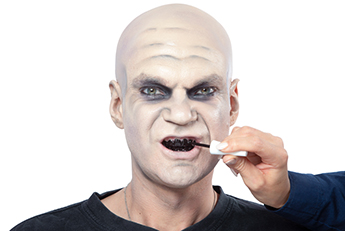
Step 6
Now Émail pour dents comes into play. First, make sure that the teeth are dried with a tissue. The model should keep the mouth open while the Émail pour dents (black) is applied to selected teeth to simulate the effect of them being decayed. For the impression of a missing tooth, the black color should be applied to the entire tooth. For a caries simulation, apply the color randomly to the root and sides of the tooth. When applying Tooth Enamel to several models, it is important to use different disposable cotton swabs.
Now Émail pour dents comes into play. First, make sure that the teeth are dried with a tissue. The model should keep the mouth open while the Émail pour dents (black) is applied to selected teeth to simulate the effect of them being decayed. For the impression of a missing tooth, the black color should be applied to the entire tooth. For a caries simulation, apply the color randomly to the root and sides of the tooth. When applying Tooth Enamel to several models, it is important to use different disposable cotton swabs.
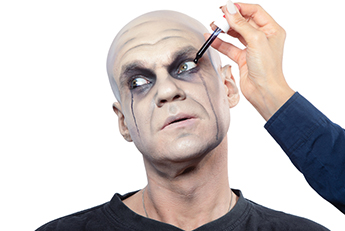
Step 7
Last but not least, Faux sang oculaire Eyeblood 20 ml (black) is dribbled into the eye. For the best effect, the model must tilt her head slightly to the side and lean back. With the eyedropper, a small amount goes into the outer corner of the eye, while the model must look with the eye in the other direction. Now the eye blood should slowly run out of the eye.
Last but not least, Faux sang oculaire Eyeblood 20 ml (black) is dribbled into the eye. For the best effect, the model must tilt her head slightly to the side and lean back. With the eyedropper, a small amount goes into the outer corner of the eye, while the model must look with the eye in the other direction. Now the eye blood should slowly run out of the eye.

